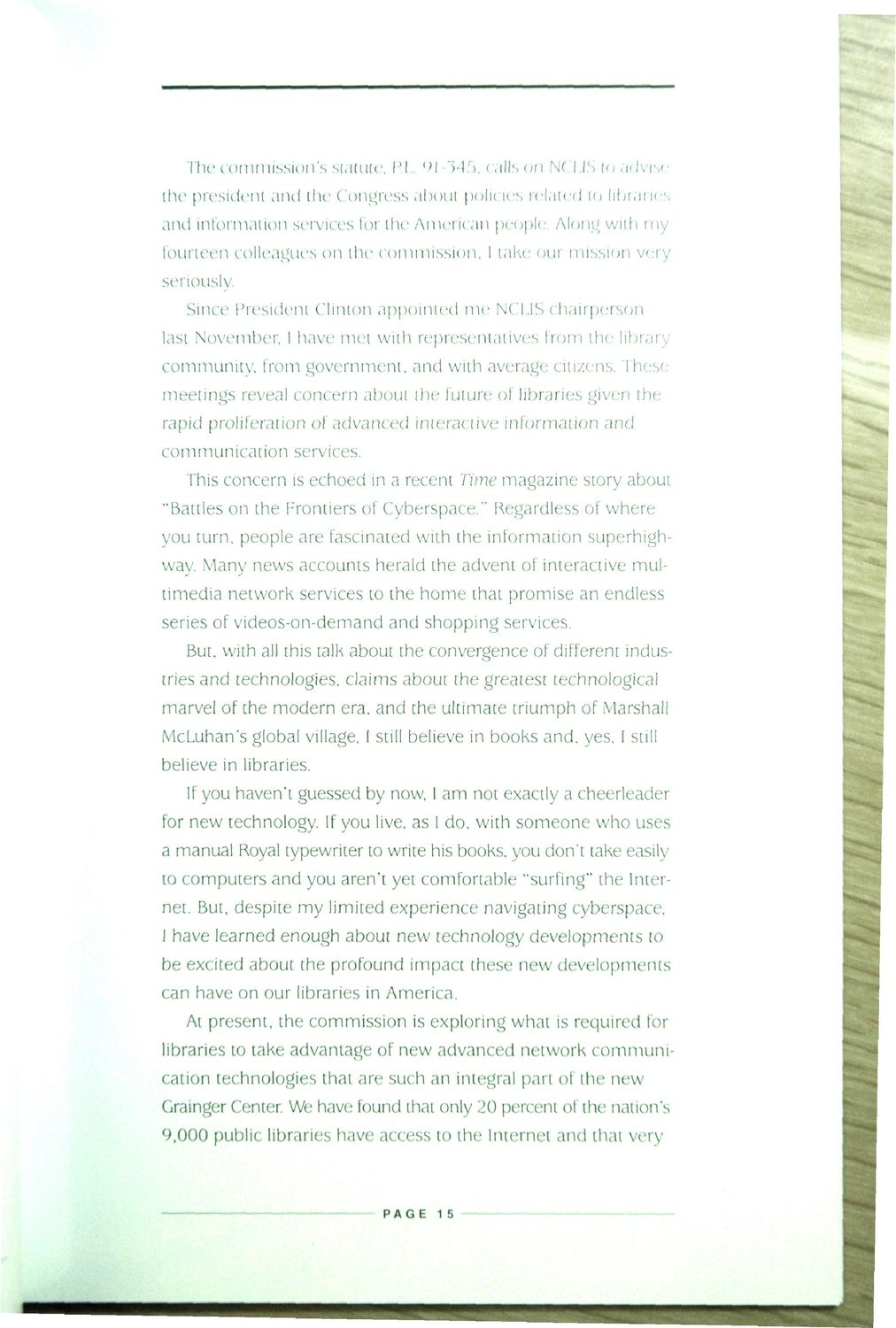| |
| |
Caption: Dedication - Grainger Engineering Library Symposium
This is a reduced-resolution page image for fast online browsing.

EXTRACTED TEXT FROM PAGE:
The commission's statute, P.L. 91-345, calls on NCLIS to advise the president and the Congress about policies related to libraries and information services for the American people. Along with my fourteen colleagues on the commission, I take our mission very seriously. Since President Clinton appointed me NCLiS chairperson last November, I have met with representatives from the library community, from government, and with average citizens. These meetings reveal concern about the future of libraries given the rapid proliferation of advanced interactive information and communication services. This concern is echoed in a recent Time magazine story about "Battles on the Frontiers of Cyberspace." Regardless of where you turn, people are fascinated with the information superhighway. Many news accounts herald the advent of interactive multimedia network services to the home that promise an endless series of videos-on-demand and shopping services. But, with all this talk about the convergence of different industries and technologies, claims about the greatest technological marvel of the modern era, and the ultimate triumph of Marshall McLuhan's global village, 1 still believe in books and, yes, I still believe in libraries. If you haven't guessed by now, I am not exactly a cheerleader for new technology. If you live, as I do, with someone who uses a manual Royal typewriter to write his books, you don't take easily to computers and you aren't yet comfortable "surfing" the Internet. But, despite my limited experience navigating cyberspace, I have learned enough about new technology developments to be excited about the profound impact these new developments can have on our libraries in America. At present, the commission is exploring what is required for libraries to take advantage of new advanced network communication technologies that are such an integral part of the new Grainger Center. We have found that only 20 percent of the nation's 9,000 public libraries have access to the Internet and that very
| |